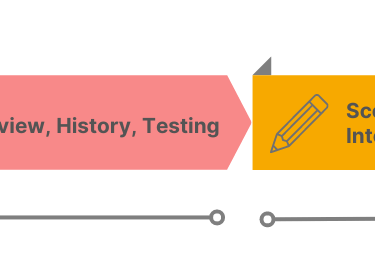Rethinking Mental Health Assessments: A Discussion with Psychologists
A summary of conversations with psychologists.
7/8/20243 min read


Mental health assessment is a cornerstone of effective treatment, yet it's a process ripe for innovation and improvement. Recently, we gathered a group of experienced psychologists for a discussion to explore the challenges and opportunities facing the field. The conversation was both insightful and thought-provoking, revealing several key themes:
1. The Efficiency Conundrum:
There's a growing recognition that mental health assessments often involve cumbersome processes and excessive paperwork, creating burdens for both clinicians and clients. The group agreed that this issue deserves more attention within the psychological community.
While maintaining the rigor and comprehensiveness of assessments is paramount, the psychologists questioned whether there are ways to leverage technology to streamline certain aspects of the process. For instance, could we automate data collection, scoring, or even portions of report generation? Doing so could potentially reduce costs for clients, who are often already facing significant stressors, and free up clinicians' time to focus on direct patient care.
2. The Integrated Care Model:
Another recurring theme was the potential of integrated care, where psychologists work alongside other healthcare providers in primary care settings. This model could offer faster access to psychological services, improve coordination of care, and destigmatize seeking mental health support.
However, implementing integrated care effectively requires careful planning and collaboration. The group emphasized the importance of establishing clear roles and responsibilities for each member of the team, as well as developing standardized referral and communication pathways.
3. The Complexity of Neuropsychological Testing:
In the context of ADHD assessments, a lively discussion centered around the role of comprehensive neuropsychological evaluations. Research suggests (1) that while neuropsychological testing can provide valuable insights, it may not always be necessary for an accurate diagnosis.
One neuropsychologist shared her approach, which often involves a combination of cognitive testing and clinical interviews, resulting in a comprehensive report. She acknowledged the time-consuming nature of this process, often taking around 10 hours to complete.
The group explored the possibility of developing briefer assessment methods, such as those using questionnaires, which could potentially reduce the time burden while still providing valuable information. They also discussed the potential benefits of pre-generating certain sections of reports to save time.
The Path Forward: Innovation and Collaboration
The roundtable discussion highlighted both the challenges and opportunities in the field of mental health assessment. It's clear that innovation is needed to improve efficiency and accessibility without sacrificing the quality of care.
Technology, integrated care models, and refined assessment tools all hold promise. But perhaps the most crucial factor is collaboration. By fostering open dialogue and sharing best practices, psychologists can collectively move the field forward and better serve the needs of their clients.
At Hyperfocus.online, we're committed to facilitating these conversations and promoting innovation in mental health assessment. We believe that by working together, we can create a future where psychological assessments are efficient, accessible, and truly empowering for those who seek them.
"Despite decades of research, the neuropsychological profile in ADHD is mixed and the outcomes of different studies vary. Patients with ADHD clearly differ from controls at group level in terms of cognitive functioning, but there is no special cognitive test profile for the individual diagnosis of ADHD. At group level, executive functioning shows abnormalities in visuo-spatial, verbal working memory, inhibition control, vigilance, and planning. Patients with ADHD make suboptimal decisions by overestimating the extent of the immediate reward, rather than considering the delayed rewards. ADHD patients also show differences in timing, speech and language, memory, speed, and response time. Patients with ADHD may have abnormalities in several cognitive areas, or in none at all. The conclusion is that cognitive functioning does not sufficiently reflect behavioral symptoms. Neuropsychological research, therefore, has no added value in the diagnosis of ADHD (Fuermaier et al., 2015). However, it may be useful to map cognitive functioning for other purposes. Neuropsychological research in adults with ADHD is carried out for differential diagnosis of comorbidity, when investigating IQ, or to gain more insight into the personality or coping style of the patient."
Fuermaier, A. B. M., Tucha, L., Koerts, J., Aschenbrenner, S., Kaunzinger, I., Hauser, J., et al. (2015). Cognitive impairment in adult ADHD – Perspective matters! Neuropsychology, 29(1), 45–58
Research
Sign up to learn what we're doing for physicians & psychologists.

Assess Mental Health With Clinical Intelligence
Products developed by Hyperfocus Software
